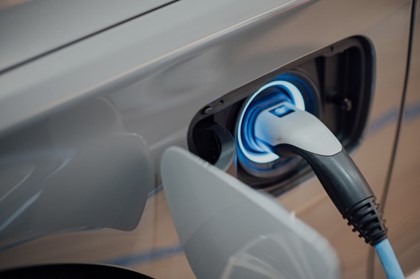
Nowadays, electric vehicles (EVs) are everywhere: on the news, in our politics, and on the road. These cutting-edge vehicles seem to have earned the eye of public policymakers with special economic considerations. And these investments — combined with an increasing appetite for these new, eco-friendly cars — are pushing the public in a new direction of vehicle selection.
However, many rental and fleet managers aren’t quite ready to adapt to the sudden popularity of electric cars. As a result, serious concerns remain about the future of EVs. However, there’s good news: With the right training, equipment, and investment, your fleet can take advantage of electric cars.
Survey Says…
Zubie recently conducted a poll that asked fleet managers about their greatest concerns in adopting electric vehicles. The results were as follows:
- Lacking charging stations and related infrastructure: 48%
- Unfamiliar with electronic vehicle technology: 24%
- Lack of customer interest: 19%
- Vehicle and maintenance costs: 10%
As you can see, the results are clear. For most fleet managers, the lack of charging stations has been identified as the biggest concern and potential stumbling block for the continued adoption of electric vehicles. These results mirror similar consumer surveys, which have found that major concerns exist across the nation regarding the ability to drive electric cars and charge them.
The infrastructure for charging a car isn’t simply plugging the car in. EVs require specific charging stations that can take hours to get a full charge. Many individuals are hesitant to buy an electric vehicle until more charges are in place. This issue creates a “chicken and egg” problem that major stakeholders can resolve. Governments are stepping into the breach, funding charging stations and creating financial mechanisms that enhance the ability of consumers to get electric vehicles.
The newness of the technology is also playing a major role in creating obstacles to its adoption. A lack of familiarity and concerns about customer interest largely stems from a lack of public awareness of the importance of electric vehicles. There’s no doubt that this trend is changing. Surveys show that interest and purchases of electric cars are undergoing explosive growth.
What does this mean? Public sentiment has changed. Fleet managers’ concerns are valid and widespread, but the public sentiment will evolve to support electric vehicles. Fleet managers need to prepare for the continued adoption of electric vehicles.
What the Future May Hold
Federal and state policy changes will result in the continued adoption of electric vehicles. From this perspective, the recently passed Inflation Reduction Act was revolutionary. It created tax incentives to encourage the adoption of electric vehicles and set up funding mechanisms that other governments, businesses, and non-profits can use to adopt electric vehicles. As such, incredible opportunities will push individuals to purchase more EVs.
This changing economic environment means that customer sentiment is likely to change. Funding packages will create more charging stations, enabling individuals to purchase electric cars and get those cars charged conveniently. The same packages will enable individuals to charge their cars at home or work. As such, businesses, fleet managers, and rental car facilities may soon have more opportunities for individuals to charge their cars at their place of work, a hotel, or another tourist attraction.
As cars become more popular, knowledge of maintenance requirements and overall care needs will continue to expand. This change in public awareness also means that more individuals will be ready, willing, and interested in buying electric cars.
All of this is to say that the concerns expressed by fleet managers about buying electric cars may soon be obsolete. Changing trends, knowledge, and consumer patterns will make electric cars popular. As a result, fleet managers and rental car organizations will have to adapt.
The Role of Telematics In Supporting An Electric Fleet
Public sentiment alone isn’t enough to ensure rental car companies and fleet managers are ready to purchase electric vehicles. Companies will need to buy the right equipment to prepare for the future. Telematics can play a vital role in ensuring that this is the case. Specific functions include:
- Vehicle health reports: Businesses and consumers can overcome concerns over the health of electric vehicles by ensuring that their technology can track a vehicle’s health. Telematic equipment can monitor critical components of a car, alert users and fleet managers when there are problems, and create customized opportunities for businesses to address their car’s maintenance needs.
- Fuel monitoring: Fuel monitoring can already track the exact gas levels in a car, ensuring that customers return their cars to pre-determined fuel levels. In the future, these systems can be adjusted to ensure that cars have electric charge and battery health monitored.
- Integration: Many existing systems, apps, and integration can allow a fleet manager to use existing technology. These integration opportunities may enable fleet managers to add apps to a car. These apps can enhance a consumer’s comfort level with an electric vehicle by pointing out the location of nearby chargers, thus enabling us to understand better how electric cars work.
As you can see, telematics can help prepare your business for electric concerns by giving you monitoring abilities, creating customized alerts, and ensuring that your fleet and staff have all the information they need to manage your fleet. Want to take the next step? Contact us today to speak with a Zubie customer service representative and get a quote on how our state-of-the-art telematics service can help your business prepare for an electric fleet.
